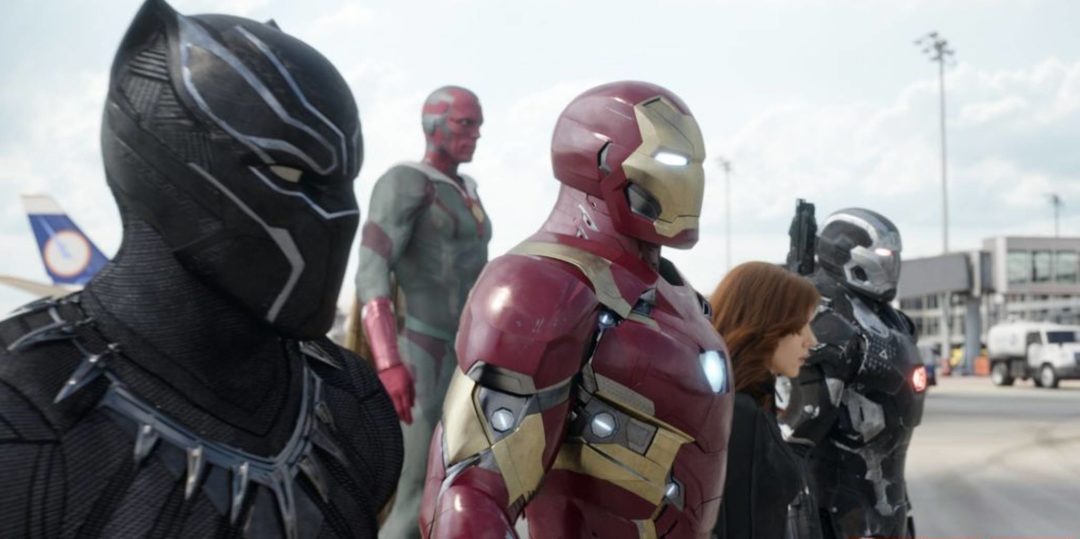From time to time, I think of an interesting question to address in this column only to realize that the question has a simple, straightforward answer that can be fully explained in just a few sentences rather than requiring a full story. Over time, these questions have accumulated to the point that I now have a sizable bank of interesting questions with answers that are informative but not particularly complex. Accordingly I present Escape from the Law: Lightning Round Edition.
Can Marvel Studios fire James Gunn?
Yes, but they still have to pay him. These days, most actors and directors have what is called a “pay-or-play” contract, which means that the studio is obligated to pay the agreed upon amount regardless of whether the project ends up going to completion. There is actually some uncertainty as to whether Gunn actually had a pay-or-play contract, but it seems certain that Marvel is going to pay anyway, if only to avoid further controversy.
Would a clone have rights?
Yes. Assuming that we’re talking about a perfect, fully functional body duplicate, a clone would almost certainly have rights. The obvious reason is that the clone would still be human and thus would still be covered by all relevant legal authorities that provide rights to everyone. The actual difficult questions implicated by clones relate to citizenship and citizen-related benefits — how would clones go about getting a unique Social Security number or registering to vote? This problem is not entirely unprecedented, but the exact procedures one would have to follow are not entirely clear. This may be a topic to revisit.
If I find a Volkswagen Bug that turns out to be Bumblebee, can the government take him away from me?
Legally speaking, the government can absolutely take Bumblebee away. While there is an interesting discussion to be had regarding whether you “own” Bumblebee in the first place, there is no doubt that even if you are the proper owner, the government can take the property for itself provided that it provides you with reasonable compensation. From a more practical perspective, the government would have a hard time taking Bumblebee. He’s quite fast.
Could Congress adopt the Sokovia Accords?
Absolutely not. The Sokovia Accords provide that anyone who violates the Accords or is otherwise deemed a threat can be detained indefinitely without trial. That provision clearly violates the Fifth and Fourteenth Amendment rights to due process. Even though the Accords resulted from a UN resolution, UN rules don’t trump constitutional guarantees. This issue was actually discussed in considerable detail here.
Is there any legal justification for Neo and Trinity killing security guards and police officers in The Matrix?
No. The justification offered by the movie was that anyone in The Matrix was expendable because they were “part of the system” and thus our enemy. That’s not good enough, and murder is illegal.
Would Spider-Man succeed in a defamation case against J. Jonah Jameson?
Yes. J. Jonah Jameson hates Spider-Man and he publishes false and misleading stories about him all the time. As a default, all one needs to do to prevail on a defamation claim is to show that the defendant made a false statement to another person which caused damage. If the plaintiff is a “public figure” he must also show that the defendant acted with “actual malice,” meaning that the defendant either knew the statement was false or acted with reckless disregard of whether it was true or not. Spider-Man could easily show that with respect to Jameson and the Daily Bugle.
Does crediting the author and writing “I don’t own this” or “All rights belong to the original owner” on a YouTube video resolve any copyright concerns?
No. Why would it? In fact, that language would actually make it harder for you defend against a copyright infringement claim since it serves as an acknowledgement that you knew you were infringing a copyright.
A few weeks ago, a Pennsylvania lawmaker proposed a 10% tax on violent video games. Can they actually do that?
No. That tax is unconstitutional.
Would it be illegal to use magic to make currency? What about gold?
Yes. Money that is not issued by the treasury would be considered counterfeit, and counterfeiting currency is illegal. Creating gold would not be illegal, but it would be illegal to pass off something like leprechaun gold as real gold.
What kind of legal rights would Pokemon have?
This one’s hard to answer, because we don’t fully understand Pokemon biology. The lightning round answer is that it would be illegal to be cruel to Pokemon. But it’s hard to know what exactly that would mean. If Pokemon are like real animals, then it would probably be illegal to have Pokemon battles. If battles do not actually harm Pokemon, then they would be allowed. Similarly, we don’t keep real pets trapped in a confined space as small as a PokeBall. But Pokemon don’t seem to mind that, so it would probably be allowed.






Published: Feb 28, 2019 02:00 pm